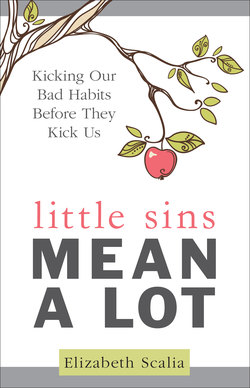Читать книгу Little Sins Mean a Lot - Elizabeth Scalia - Страница 12
На сайте Литреса книга снята с продажи.
ОглавлениеChapter Three
Self-Neglect
Self-love, my liege, is not so vile a sin As self-neglecting.— Henry V, Act II, Scene IV
Flannery O’ Connor once proclaimed that “half of writing is overcoming the revulsion you feel when you sit down to it.” As I demonstrated in the chapter on procrastination, she is quite right. Of all the chapters I have desperately tried to avoid writing for this book, I have felt real revulsion at the prospect of pulling this one from my brain because it touches on too many home truths. I’ve always said self-effacement is a much easier discipline than facing the self.
A couple of years ago, discussing a public figure with a young Catholic writer, I wondered about whether our subject was as narcissistic as it was claimed. He looked down upon me, mostly because I am short, and said, “You could use a little of his narcissism.”
When people make spontaneous comments touching on my looks, I never know how to receive it, and therefore I rarely make a response. I’m always too busy trying to figure out whether they were complimenting me or expressing dismay.
That’s not a joke. In my youth, I had managed a brief moment of svelte prettiness that always seemed to bring out the lecher in crass sorts of men (and occasionally crass women), and it always left me wary and wondering. Having become plump in my 30s, I recall meeting a woman on the street who exclaimed, and loudly, “What happened to you? You used to weigh 80 pounds!”
Mistaking my silence and dumb look for a rebuke, she telephoned later to apologize, and I had no idea how to explain to her that my silence was not meant as a censure: I’d simply been trying to figure out if I had ever looked as good as she seemed to think. In my own mind, I have always been a hideous specimen, which perhaps explains why it is that, while I love looking at fashion and fabric, and shoes, I think of them as “not for me.” I generally wander about wearing years-old black clothing and plastic Crocs on my feet. It occurs to me that, having never felt like much of a gift to anyone, wrapping myself up in pretty colors and topping myself off with a bow would seem a bit like false advertising.
Is that self-loathing? Sure, it is, in spades. If excessive self-love can come from a place of insecurity, self-neglect comes from a place of hate and anger — from a place where God is not, because we do not extend an invitation to God to join us in our interior squalor.
That is to our detriment, though, because if we would only invite him in, he would come. And then, where God is, what has been empty becomes full; what has been dark becomes light; what has been plundered can be made whole. The job is neither easy nor fast, but eventually our interior restoration cannot help, in those circumstances, to eventually become reflected in our exterior.
Pondering that, I scald at my own bad habits and the deficient understanding that has allowed them to take such hardy root within me, for so long, because it has only made my restoration a bigger undertaking than it might have been 20 or 30 years earlier.
Back when my companion recommended that I embrace a measure of narcissism, I was left with questions:
• Why would someone advise me toward narcissism?
• Is my self-neglect so obvious?
• But it’s a good and humble thing, is it not, to be unconcerned about the body and how it is clothed and whether or not I am in fashion?
I didn’t pursue the answers, at that time, because if I had, they would have been obvious:
• Because look at yourself, woman!
• Yes.
• Umm, well … you’re confusing detachment, which is a good and humble thing, with treating and dressing yourself in a manner wholly distinct from the way you treat or dress the people you actually love.
Oh — and ow.
Yeah, that stung to write. And I bet a lot of parents reading that last bit might identify with it, and feel a bit stung too.
